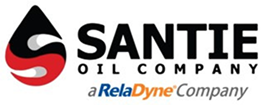Metalworking shops require lubricants to function well. Without oils, the machines would quickly grind to a halt. Proper maintenance and care help keep these machines running effectively. Major operations often require wholesale industrial supplies in order to have enough product to keep all the machines running as needed. But how do you know which lubricant you need for a project?
Use the Right Oil
Pure synthetic oils contain no actual oil whatsoever, while semi-synthetic lubricants contain under 30% oil content in concentrate. To choose which oil you need, you'll need to know a few things about the machines you're working with. What types of metals do you use frequently and what sort of metalworking machines do you have access to? What sort of machining operations are most common where you work? Does your shop have any kind of chemical restrictions in place? If in doubt, round up qualified employees from other departments to help you fill in the gaps, and talk to a metalworking fluids expert to help you select the correct lubricant options.
Materials Make a Difference
It's important to know which metals and metal alloys you use most frequently, as they're not created equal. Some metals are softer than others and only require a general lubricant. These metals include brass, aluminum, and carbon steel. On the other hand, hard metals such as stainless steel and some exotic alloys will require high-performance oil in order for the machines to cut them effectively. Read the labeling carefully, as using an active sulfur lubricant with soft metals like brass will result in tarnishing and stains. This is one of the most aesthetically important pieces of the puzzle to figure out before contacting any place that sells wholesale industrial supplies.
Machine Operations and Types
Generally speaking, mild operations like milling do fine with lower viscosity, light-on-additives lubricants. Difficult operations such as thread-cutting usually require higher viscosity lubricants with more EP (extreme pressure) additives. Metalworking machines also require different types of oil due to a variety of factors. For example, a screw machine would require a dual or tri-purpose lubricant due to cross-contamination. Be careful to take all of these factors into account when selecting a lubricant for a machine.
Choosing the right lubricant for your metalworking machines is no simple task. Many places that sell wholesale industrial supplies are qualified to help you determine the right lubricant for your machines, so it's best to ask if you're unsure. Contact Santie Midwest today!

